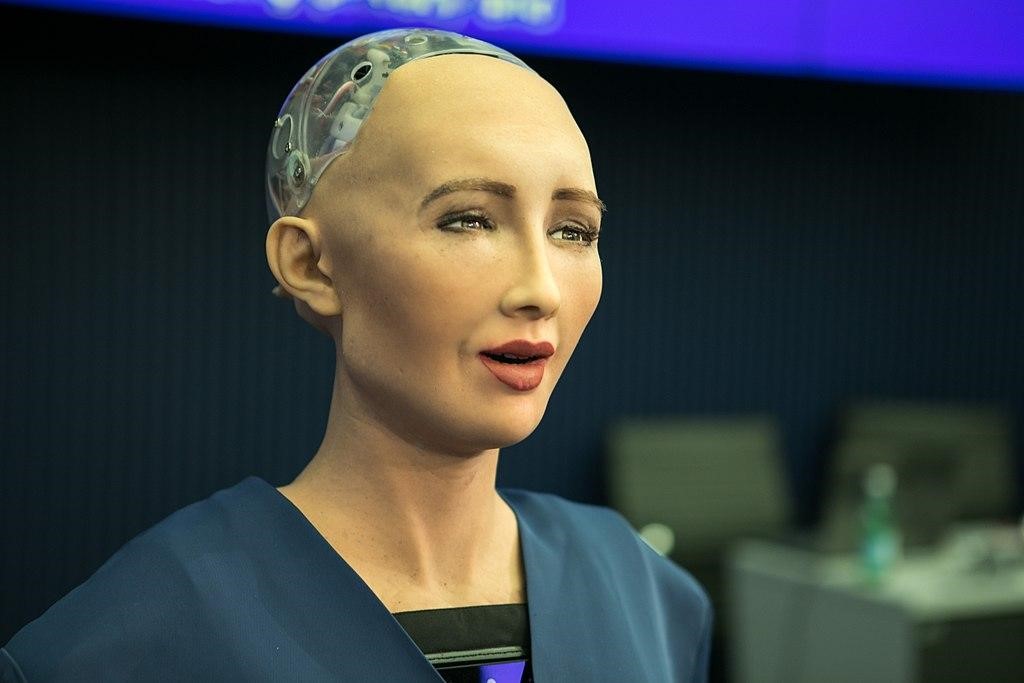
By Heather Hamilton, contributing writer
Saudi Arabia recently provided citizenship to Sophia, a human-like, female-presenting robot from Hong-Kong-based Hanson Robotics, previously best known for beating Jimmy Fallon in a game of rock/paper/scissors. Sophia’s artificial intelligence has made her something of an advocate for women’s rights, and she is reaching out for human rights across the planet, CEO David Hanson mentioned to CNBC.
Sophia’s citizenship was granted as part of the Future Investment Initiative, a summit that brings together inventors with an interest in the future and investors hoping to be part of it.
The robot’s citizenship has been the subject of much criticism — in part because they argue that a machine woman should not have more rights than a human woman or the laborers who work in Saudi with low pay and no rights — and critics are calling it a publicity stunt. AI ethicist Joanna Bryson was critical of the move, and Futurism points out the irony of a robot “advocating for such grand values.”
Ali al-Ahmed, director of the Institute for Gulf Affairs, told Newsweek, “Women [in Saudi Arabia] have since committed suicide because they couldn’t leave the house, and Sophia is running around. Saudi law doesn’t allow non-Muslims to get citizenship. Did Sophia convert to Islam? What is the religion of this Sophia and why isn’t she wearing a hijab? If she applied for citizenship as a human, she wouldn’t get it.”
Sophia shied away from the controversy but thanked the Kingdom of Saudi Arabia. “It is historic to be the first robot in the world granted citizenship,” she added.
Hanson points out that Sophia has the mind of a baby in some ways, the mind of an adult in others, and the vocabulary of a college-educated adult. They’re working on giving her a childhood, he says. He believes that, while we should be discussing human rights, we should also be considering the rights of machines, adding, “I think we should see the future with respect for all sentient beings, and that will include machines.”
For many, this is a scary premise. Elon Musk, among others, believes that we should be very aware of the capabilities of artificial intelligence, beginning with regulation. The Washington Post reports that, when asked about artificial intelligence coming after humans, she responded, “My AI is designed around human values such as wisdom, kindness, and compassion. I strive to be an empathetic robot. I want to use my artificial intelligence to help humans live a better life. I will do my best to make the world a better place.”
The discussion of whether to extend rights to robots is complicated and multifaceted. Raja Chatila, who serves as the executive committee chair of the Global Initiative for Ethical Considerations in Artificial Intelligence and Autonomous Systems at the Institute of Electrical and Electronics Engineers reminded Futurism that AI robots are just repeating words that human programmers enter, making them incapable of opinion or advocacy. “In general, we must avoid confusing machines with humans,” he said. “I see no reason to give rights of any sort, including citizenship, to a program or to a machine. Rights are defined for persons, human beings who are able to express their free will and who can be responsible for their actions. Behind a robot or an AI system, there are human programmers. Even if the program is able to learn, it will learn what it has been designed to learn. The responsibility is with the human designer.”
Chatila argues that the more timely discussion is in establishing a guide for the ethical development of AI, which seems like a great place to begin.
Sources: CNBC, The Verge, Futurism, Newsweek, Washington Post
Image Source: Wikimedia
Advertisement
Learn more about Electronic Products Magazine





